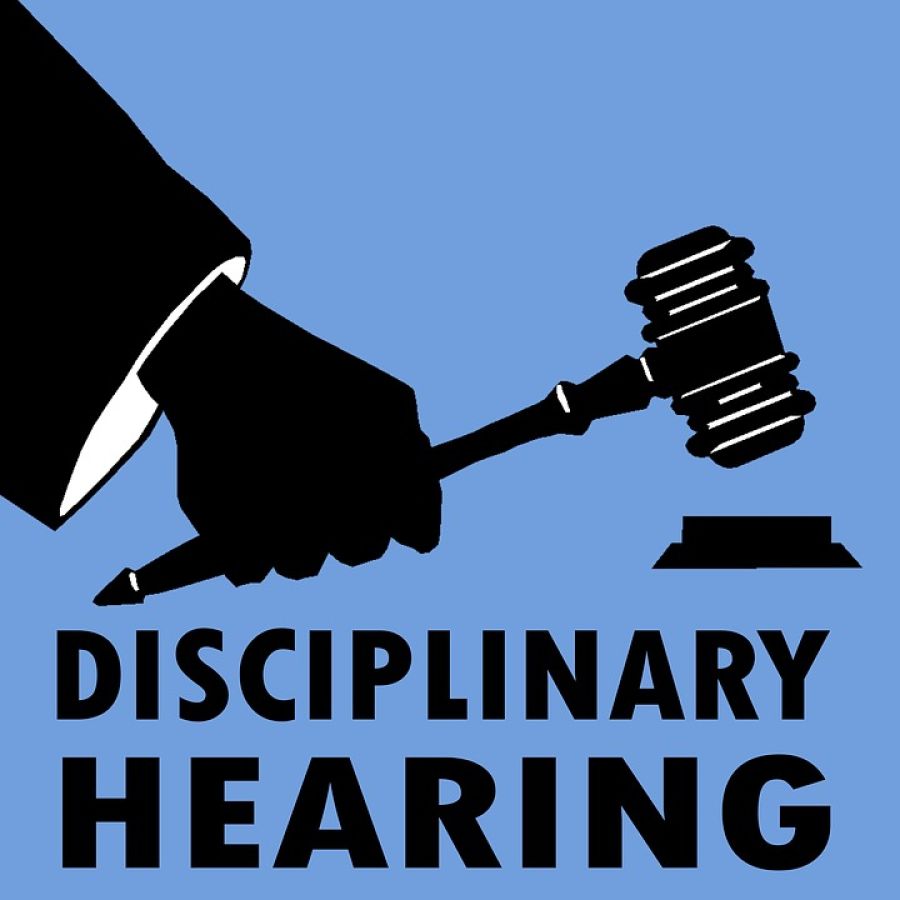Blog

Blog
Call us today for a free initial consultation on 0800 772 0341
How does disciplinary action work?
Published 11 November 2019


By now we all know what is required to conduct a fair disciplinary process, but ensuring it actually is fair is not always straightforward.
An employer’s disciplinary procedure should be documented in writing and be made readily available to all staff,
The ACAS Code of Practice on disciplinary and grievance procedures sets out core principles for handling disciplinary proceedings fairly and reasonably (1)
A failure by an employer to adhere to the guidance in the Code does not, in itself, make a person or organisation liable to proceedings. Where is demonstrable that an employer has unreasonably failed to follow the Code, employment tribunals can adjust any compensatory awards made in relevant cases by up to 25 per cent.
A badly handled disciplinary process can have serious and expensive consequences for an employer, especially if it leads to a claim for unfair dismissal (2)
Last year it was reported that An IT manager at an NHS trust was awarded £1m in compensation by an employment tribunal after he was unfairly dismissed (3)
The substantial damages awarded reflected the Claimant’s significant loss of pension rights following his dismissal. The case was said to serve as a timely reminder to employers with final salary schemes in place that a failure to follow fair, unbiased and thorough disciplinary procedures, that are not tainted with discrimination, can result in huge compensation awards.
The compensation awarded in that case is exceptional. The current cap on compensatory awards for an unfair dismissal is £86,444.
It means that if an employee’s gross pay for a year is higher than that amount, a tribunal cannot award the individual more than £86,444 (4) If an employee earns less than £86,444, there’s also a cap on the amount they can be awarded. The limit is one year's gross pay.
An employer’s disciplinary procedure should set out what actions will be taken if company rules are broken. The policy should also detail what the disciplinary process entails. For example, it can include the different levels of disciplinary action that may be taken, examples of what behaviour constitutes misconduct and gross misconduct and how an employee can appeal any disciplinary decisions.
There should also be scope in the disciplinary procedure to allow informal action to be taken to address any minor transgression by an employee. Such action will usually only be taken where it is suitable to do so.
If the allegation is serious, then formal disciplinary action is typically taken. In such circumstances and employer may opt to suspend an employee to allow further investigation to be carried out.
If following a disciplinary investigation, a decision is taken to instigate formal disciplinary action, the employee should be notified of this in writing. They should be asked to attend a disciplinary hearing and advised of their right to be accompanied by a trade union representative or one of their work colleagues at the hearing (5).
The employee should be provided with full details of the case against them, including any written evidence, and informed of the possible consequences. This gives them a reasonable opportunity to prepare their response to the allegations in advance of the hearing.
After considering all the evidence presented and any representations made by the employee, a decision should then be taken about what action is appropriate. This may include issuing a formal sanction including dismissal or clearing the employee of any wrongdoing.
Any action taken should be confirmed in writing and the employee notified of their right to appeal the outcome if they are dissatisfied with it. Written records should be kept of all disciplinary issues, including dates, details and copies of correspondence with the employee.
It is vital that a fair and reasonable disciplinary procedure is carried out in all cases, as it will help to protect an organisation from any subsequent employment tribunal claims.
References:
1. Code of Practice – [Internet] www.acas.org.uk [Cited 04.11.19] https://beta.acas.org.uk/code-of-practice-on-disciplinary-and-grievance-procedures
2. Unfair Dismissal – [Internet] www.nidirect.gov.uk [Cited 04.11.19] https://www.nidirect.gov.uk/articles/unfair-dismissal
3.Compensation from a Tribunal – [Internet] www.personnelday.com [Cited 04.11.19] https://www.personneltoday.com/hr/former-nhs-it-manager-awarded-1-million-pay-out-for-unfair-dismissal/
4.Compensation what can be awarded – [Internet] www.citizensadvice.org.uk [Cited 04.11.19] https://www.citizensadvice.org.uk/work/problems-at-work/employment-tribunals-from-29-july-2013/employment-tribunals-valuing-a-claim/compensatory-award/calculating-the-compensatory-award/employment-tribunals-is-your-compensatory-award-below-the-cap-and-will-any-welfare-benefits-you-ve-received-reduce-it/.
5. The right to be accompanied by a trade union representative – [Internet] www.castleassociates.org.uk [Cited 04.11.19] https://castleassociates.org.uk/blog/legal-corner-right-trade-union-representation.
“A reputation built on success”
For free employment law advice or if you are affected or want information and support by any of the issues in this article please give us a call. 0333 772 0611
A reputation built on success
If you're facing any of the issues in this article - or need guidance on disciplinary, grievance, or redundancy matters - call us today. Our expert Trade Union Representatives are available to represent you in crucial workplace meetings, with pay as you need support.